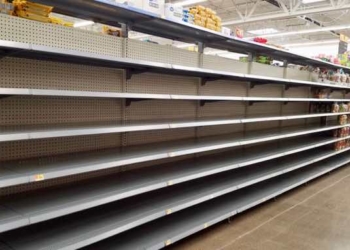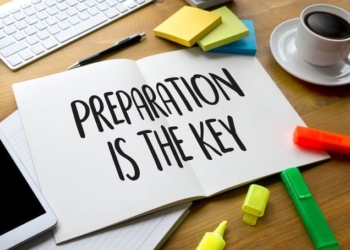
Nothing can be worse than waking up in the middle of the night just to find out the electricity is gone and it’s not coming back anytime soon. The power may come back in an hour if you’re lucky. But if it happens due to an accident or critical weather, it may take weeks for everything to become normal.
Whether it’s unexpected or previously announced, a blackout is no fun and can be dangerous to you and your family. You might be out of food, water, and necessary accessories if you’re not prepared.
No matter whatever the reason is, you can survive the power outage with a good backup plan. Continue reading if you want to learn about these plans.
How to Survive a Power Outage
Leading a normal life during a power cut is more than an inconvenience if you don’t take enough precautions. If you are lucky enough to plan ahead, you can get a home battery. This is like a generator but running completely on batteries. If not, here are some tips that will help you survive when there’s no electricity. Although, having the best 5000-watt generator near you is a must if you live in an area where the electricity goes out often, as 5000 watts is enough to power most of the electronics in your home.
Store Food & Water
One of the worst things that can happen is that you may run out of food and water. The foods in your refrigerator are likely to be spoiled if there’s no electricity. That’s why you need to store a good amount of food for you and your family.
It’s best to fill your closet with foods that are non-perishable. These are basically canned or dried foods that don’t require refrigeration and can be stored for a longer time. However, do check their expiration date.
Also, store a good amount of water bottles as it’s very normal to have a shortage of drinking water during a blackout.
Have a Backup Power Supply
You can only realize the importance of a backup power supply when there’s a power outage. However, it’s a must-have for every home. You can’t even charge your battery if there’s no electricity.
Things can be worse if most of the appliances in your home run on electricity. Electric ovens, water heaters, and even the heating system of your house depend on electricity.
One of the best options to survive during this situation is to buy a generator. If you’re confused about which one to buy, go to ablesales.com.au. There are generators of different types and sizes based on the size of your home.
Also, don’t forget to buy some portable lamps and batteries in this situation.
Keep a First Aid Box
You and your family members, particularly children and older people, can be injured when trying to move in the dark. That’s why it’s essential to keep a first aid box on-hand.
According to the American Red Cross, your first-aid kit should contain absorbent compress dressings, adhesive cloth tape, bandages, antibiotic ointments, wipe packets, aspirin, instant cold compress, non latex gloves, tweezers, sterile gauze bandages, oral thermometer, etc.
Fill Your Cooler with Ice
It’s possible that your refrigerator may fail to work due to power shortage, and even your generator may not be able to fix this problem. There’s a high possibility that all your foods will be spoiled in this situation.
Whether you have a generator or not, you can still keep your food safe. Just fill a cooler with ice and put your frequently used food inside the cooler. Doing so will also cut down the number of times you need to open the refrigerator.
Keep Your Devices Charged
You might not get enough electricity to charge your phone or laptop during a blackout. But there’s no harm to keep them charged before any disaster happens. That’s why you should always try to keep your devices and gadgets fully charged.
You can also keep some power banks, which you can use to charge the devices during a power cut. There are different kinds of power banks available in the market.
Make Sure There’s No Carbon Monoxide
Carbon monoxide is a tasteless, odorless, colorless gas that appears whenever anything burns. It’s so extremely toxic that it can even kill animals and humans during a power outage.
Make sure you are not running the generators in an open space or near the window. It’s highly likely to produce this toxic gas. Do not forget to install a carbon monoxide detector in your home and check regularly to see if it’s working.
Keep Yourself Warm with the Water Heater
Consider yourself lucky if your water heater is a gas model without power venting. Things like these may work during a blackout, meaning that you will get enough supply of warm water.
Fill your tub and sink with warm water and use them whenever needed. It may not be comfortable enough, but it can save you from getting frozen if there’s a power cut during winter.
Stay Alert
A blackout can happen for many reasons, such as accidents or for environmental issues. While you can’t be prepared for an accident, you can be alert if there’s a weather issue ahead.
Sign up for the alert and warning system of your locality. Always stay updated about the weather and make preparations accordingly.
Think of an Alternate Location
Things can be extremely difficult at home during a blackout, especially with kids, the eldery, and sick family members. The temperature might be critical, and the ambulance may not arrive at your home in time due to a lack of enough light in the road.
Think of a different option. Is it possible to move somewhere safer? Then move there with your family. Your local government may arrange some shelter during adverse weather where you can go with your family.
Think of an Alternative Use
There are lots of things in your house that you can use during a power cut. For example, the battery of your car holds enough power to charge gadgets like mobile phones and power banks.
So, if your phone is out of charge during a blackout, don’t panic. Use your car’s battery to charge them.
Take Care of Others
You might be fully prepared to deal with a long power outage, but what about your next-door neighbor? It’s worth checking if your neighbors are also prepared for the blackout. Also, provide them with the necessary resources if you have extra.
Conclusion
Accidents can happen anytime, and power outages pose a double risk. You need to be extremely careful as you’re less likely to get any immediate support from the hospital or fire service.
Always have a backup plan for situations like blackouts to keep you and your family members safe. And when the power comes back, prepare yourself for future outages.













